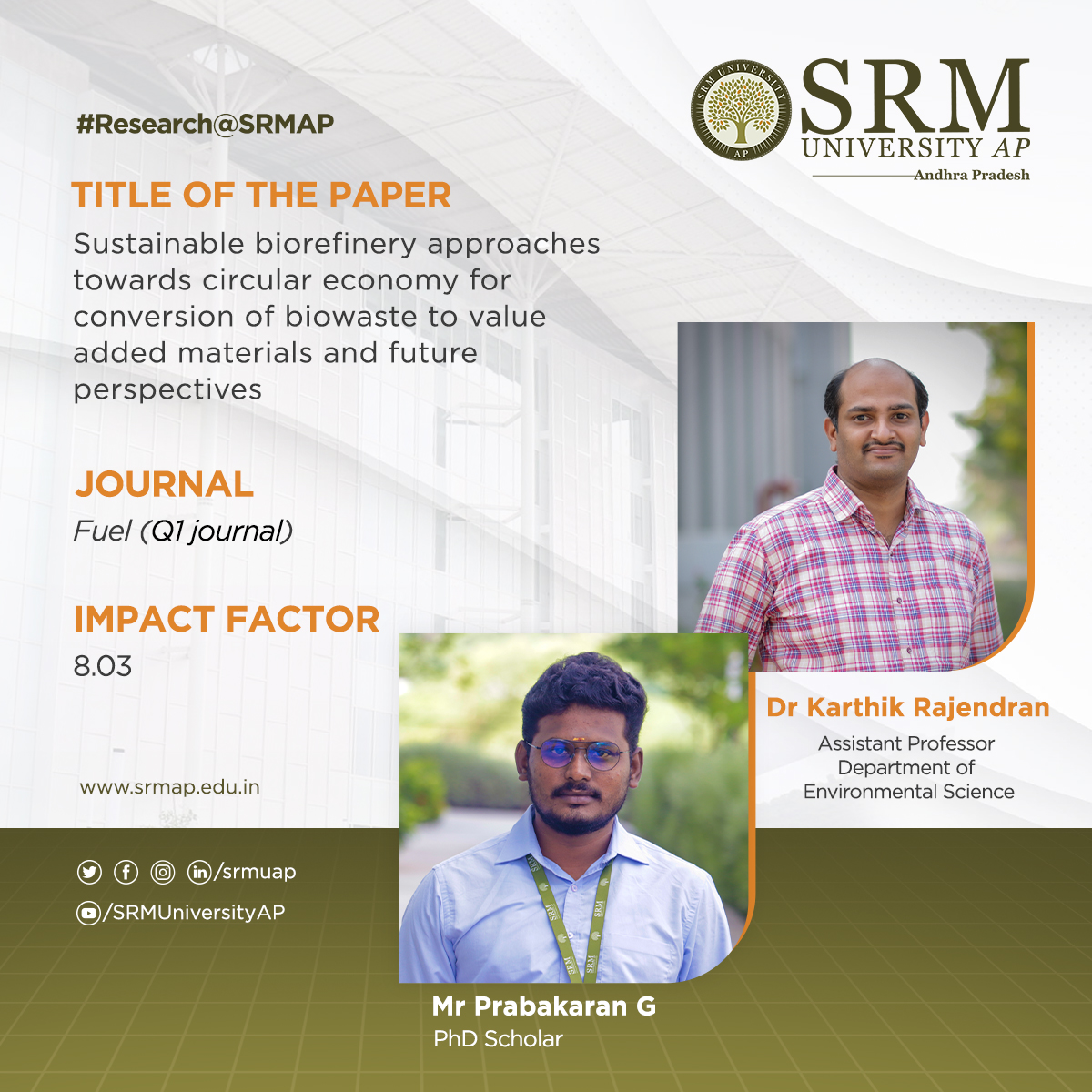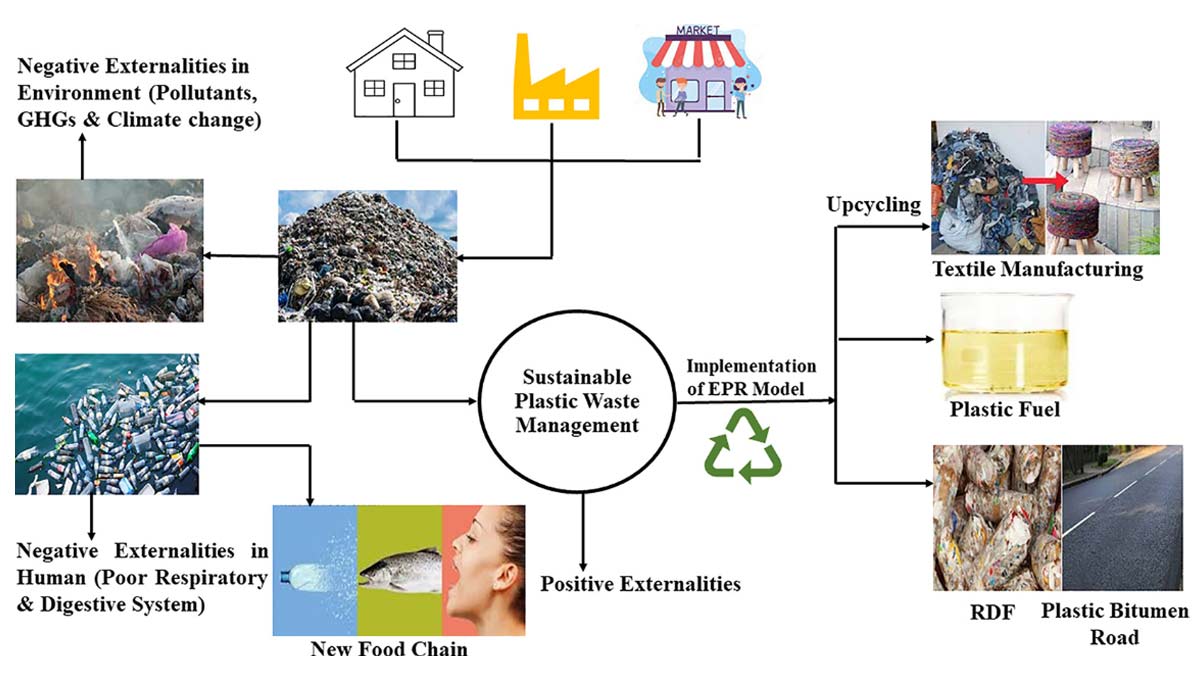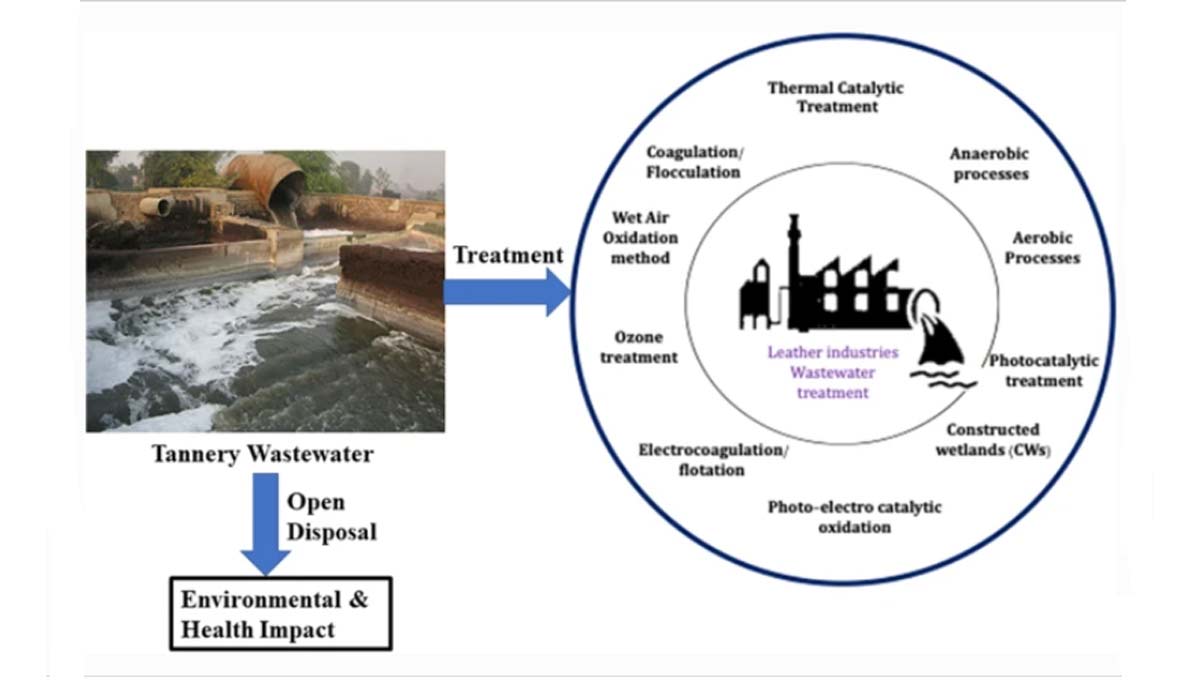Current Happenings ENVS News
- Sustainable biorefinery approaches for a circular economy July 15, 2022
 Worldwide, 1.3 billion tons of bio-waste are generated annually. By 2025, this is predicted to be increased by 2.2 billion tons/year. The emerged biowaste biorefinery has proved as a sustainable approach for integrated bioproducts, such as bioenergy, biopolymers, biochemicals, bioplastics, and biofertilizers further used for industrial, commercial, agricultural, and energy applications. Integrating biorefinery concepts into biowaste management is promising for a circular bioeconomy. Recent research at the Department of Environmental Sciences investigates the potential of sustainable biorefinery approaches. Assistant professor Dr Karthik Rajendran and his PhD scholar Mr. Prabakaran G published a paper, Sustainable biorefinery approaches towards circular economy for conversion of biowaste to value added materials and future perspectives, in Fuel, a Q1 journal, with an impact factor of 8.03. For this paper, they have collaborated with Dr Mukesh Kumar Awasthi from the College of Natural Resources and Environment, Northwest A&F University, China.
Worldwide, 1.3 billion tons of bio-waste are generated annually. By 2025, this is predicted to be increased by 2.2 billion tons/year. The emerged biowaste biorefinery has proved as a sustainable approach for integrated bioproducts, such as bioenergy, biopolymers, biochemicals, bioplastics, and biofertilizers further used for industrial, commercial, agricultural, and energy applications. Integrating biorefinery concepts into biowaste management is promising for a circular bioeconomy. Recent research at the Department of Environmental Sciences investigates the potential of sustainable biorefinery approaches. Assistant professor Dr Karthik Rajendran and his PhD scholar Mr. Prabakaran G published a paper, Sustainable biorefinery approaches towards circular economy for conversion of biowaste to value added materials and future perspectives, in Fuel, a Q1 journal, with an impact factor of 8.03. For this paper, they have collaborated with Dr Mukesh Kumar Awasthi from the College of Natural Resources and Environment, Northwest A&F University, China.Biorefinery is designed to improve the economic potential and achieve a circular bioeconomy by integrating various technologies such as pyrolysis, anaerobic digestion, gasification, incineration, and aerobic composting to gain energy, nutrients, and material recovery. Biowaste biorefinery contributes as a driving force to cope with challenges of resource scarcity, climate changes, and increased demand. The sustainable biorefinery approaches toward circular bioeconomy require a comprehensive understanding of the biowaste across the value chain. Based on the carbon neutralized biowaste biorefinery concept, this paper explained biowaste generation and utilization as a renewable resource through biorefinery techniques from the perspective of energy, nutrients, and material recovery. Meanwhile, clarify the implementation status, public engagement, and prospects of biowaste recycling with the central concept of biorefinery circular bioeconomy.
Abstract
With the colossal energy demand inevitably exacerbating the non-renewable resources depletion and ecological-social challenges, renewable energy has become a crucial participant in sustainable strategy. Biorefinery emerged as a sustainable approach and recognized promising transformation platforms for products to achieve a circular bioeconomy that focuses on biomass efficiency and sustainable valorisation, promotes resource regeneration, and restorative. The emerged biowaste biorefinery has proved as a sustainable approach for integrated bioproducts and further applied this technology in industrial, commercial, agricultural, and energy sectors. Based on carbon-neutral sustainable development, this review comprehensively explained biowaste as renewable resource generation and resource utilisation technologies from the perspective of energy, nutrient, and material recovery in the concept of biorefinery. Integrating biorefinery concepts into biowaste management is a promise for the conversion of biowaste into value-added materials. It contributes as a driving force to cope with resource scarcity, climate changes, and huge material demand in a circular bioeconomy. In practice, the optimal of biorefinery technologies depends on environmentally friendly, economic and technical feasibility, and social and policy acceptance. Additionally, policy interventions are necessary to promote biowaste biorefinery implements for a circular bioeconomy and contribute to a low-carbon cleaner environment.
Continue reading → - Dr Pankaj Pathak published articles on sustainable waste management July 2, 2022
Dr Pankaj Pathak from the Department of Environmental Science has been keenly involved in research studies involving solid waste management and the effective conversion of wastes to energy. Her latest research publication ‘A comprehensive review on integrative approach for sustainable management of plastic waste and its associated externalities’ in the journal Science of the Total Environment (Impact Factor: 10.973) proposes enhanced solution for the sustainable management of plastic wastes. The article was published in collaboration with her PhD Scholar MSSR Tejaswini, Prof Sreeram Ramakrishna from the Centre for Nanofibers and Nanotechnology, National University of Singapore and Dr P Sankar Ganesh from BITS Pilani, Hyderabad.
Abstract of the Research

The management of post-consumer discarded plastic wastes (PCPW) creates new challenges in developing countries due to the lack of amenities, technological interventions, and associated negative environmental externalities. The fate of untreated recyclable and non-recyclable plastic wastes lies in open dumping along with other solid waste, and improper management leads to environmental externalities such as pollution, global climate change, and health issues. Additionally, open dumping upsurges the emerging microplastics and nano plastics (MNPs) contaminants. The externalities depend on the waste generating sources (household, industries, commercial), waste composition, and its characteristics. However, urban mining can minimize environmental externalities where waste plastics can convert into potential anthropogenic resources and also helps in achieving the target of sustainable development goals (SDGs 11 & 12). Moreover, various treatment technologies that help in the sustainable utilization of plastic wastes are extensively reviewed in this study and evaluate the costs benefits arising during various stages of treating plastic waste through recycling (R), incineration (I), and landfilling (L). The recycling of plastic waste has demonstrated the lowest impact on global warming potential (GWP) and total energy use (TEU), followed by landfilling and incineration (R < L < I). Nevertheless, when energy is recovered from inert (non-recyclable) plastic waste in the form of fuel or by its utilization in construction purposes, the environmental impacts are more negligible (Incineration < Landfilling). Therefore, this study determines the significance of circular economy with legislative approach and standards on plastic waste management, which help in reducing environmental externalities besides yielding a secondary resource as energy and materials through urban mining. A sustainable plastic waste management (SPWM) model is proposed for developing countries to convert plastic waste into resources and use it as a sustainable tool in urban mining.
Yet another article, ‘Comprehensive technological assessment for different treatment methods of leather tannery wastewater’, co- published by Dr Pankaj Pathak along with a group of other researchers was featured in the journal Environmental Science and Pollution Research having an Impact Factor of 5.19. The work offers some exhaustive observations and recommendations that could be helpful in the industry to manage tannery wastewater and recirculate the water in a sustainable manner.
Abstract of the Research

The leather-making process necessitates large amounts of water and consequently generates tons of liquid waste as leather tannery wastewater (TWW) is disposed of directly in the open environment. Open disposal of untreated TWW into the natural environment causes an accumulation of various polluting compounds, including heavy metals, dyes, suspended solids inorganic matter, biocides, oils, tannins, and other toxic chemicals. It thus poses potential hazards to the environment and human health. This study primarily focuses on providing in-depth insight into the characteristics, treatment strategies, and regulatory frameworks for managing TWW in leather processing industries. Different technologies of conventional physico-chemical (equalization, coagulation, and adsorption), advanced approaches (Fenton oxidation, ozonation, cavitation), thermo-catalytic and biological treatments available to treat TWW, and their integrative approaches were also highlighted. This review also sheds light on the most frequently applied technologies to reduce contaminant load from TWW though there are several limitations associated with it such as being ineffective for large quantities of TWW, waste generation during treatment, and high operational and maintenance (O&M) costs. It is concluded that the sustainable alternatives applied in the current TWW technologies can minimize O&M costs and recirculate the treated water in the environment. The exhaustive observations and recommendations presented in this article are helpful in the industry to manage TWW and recirculate the water in a sustainable manner.

